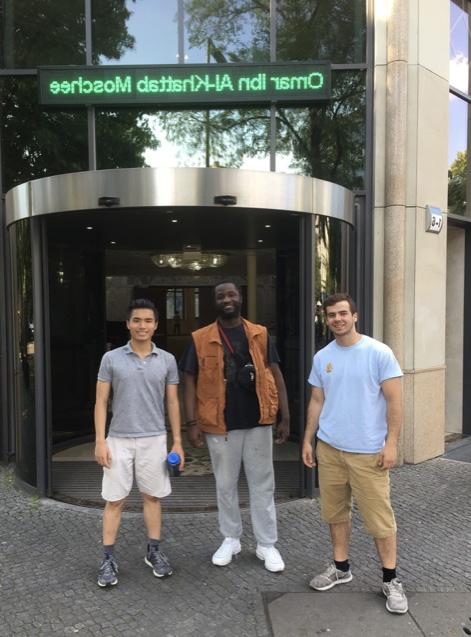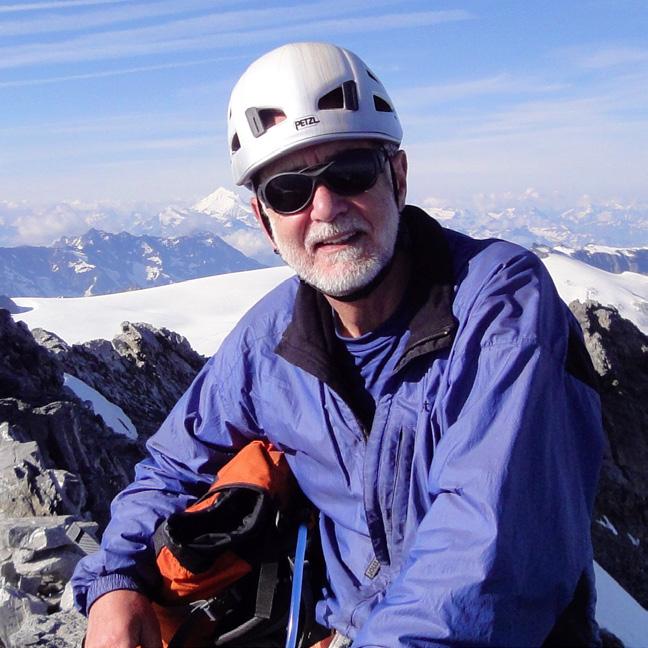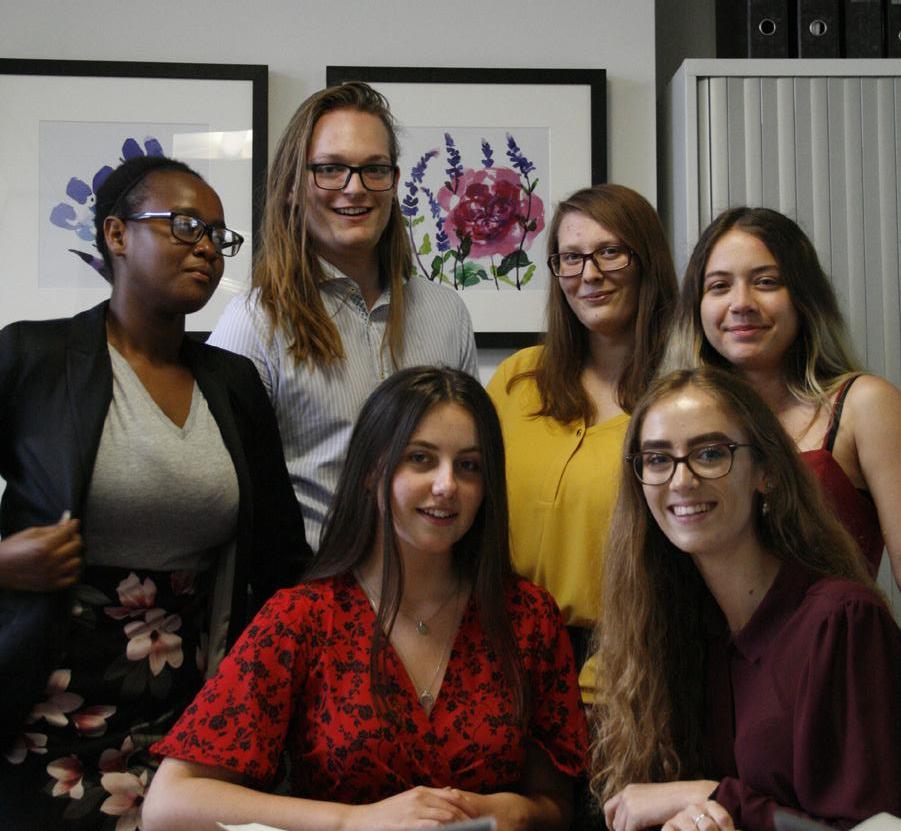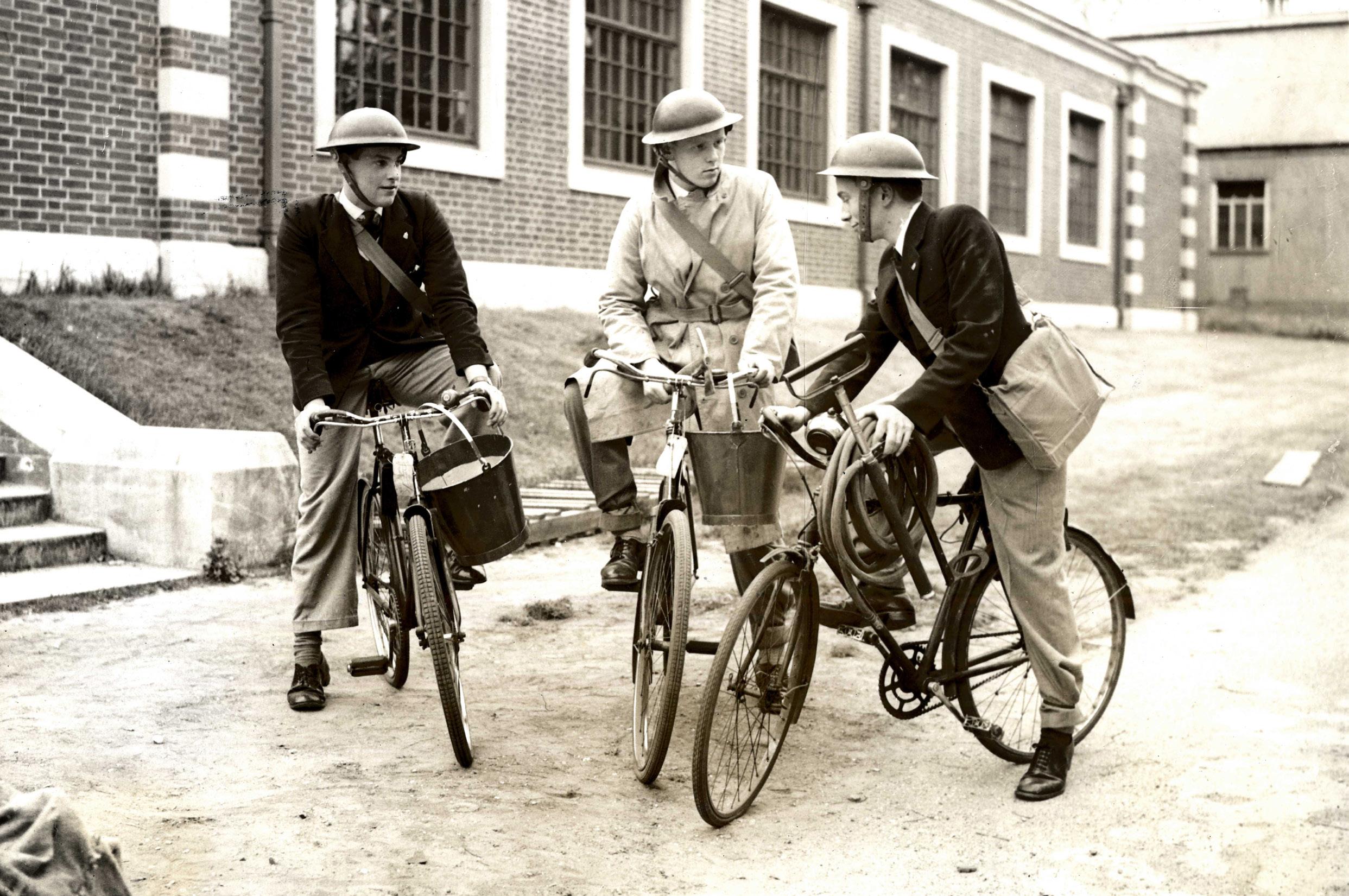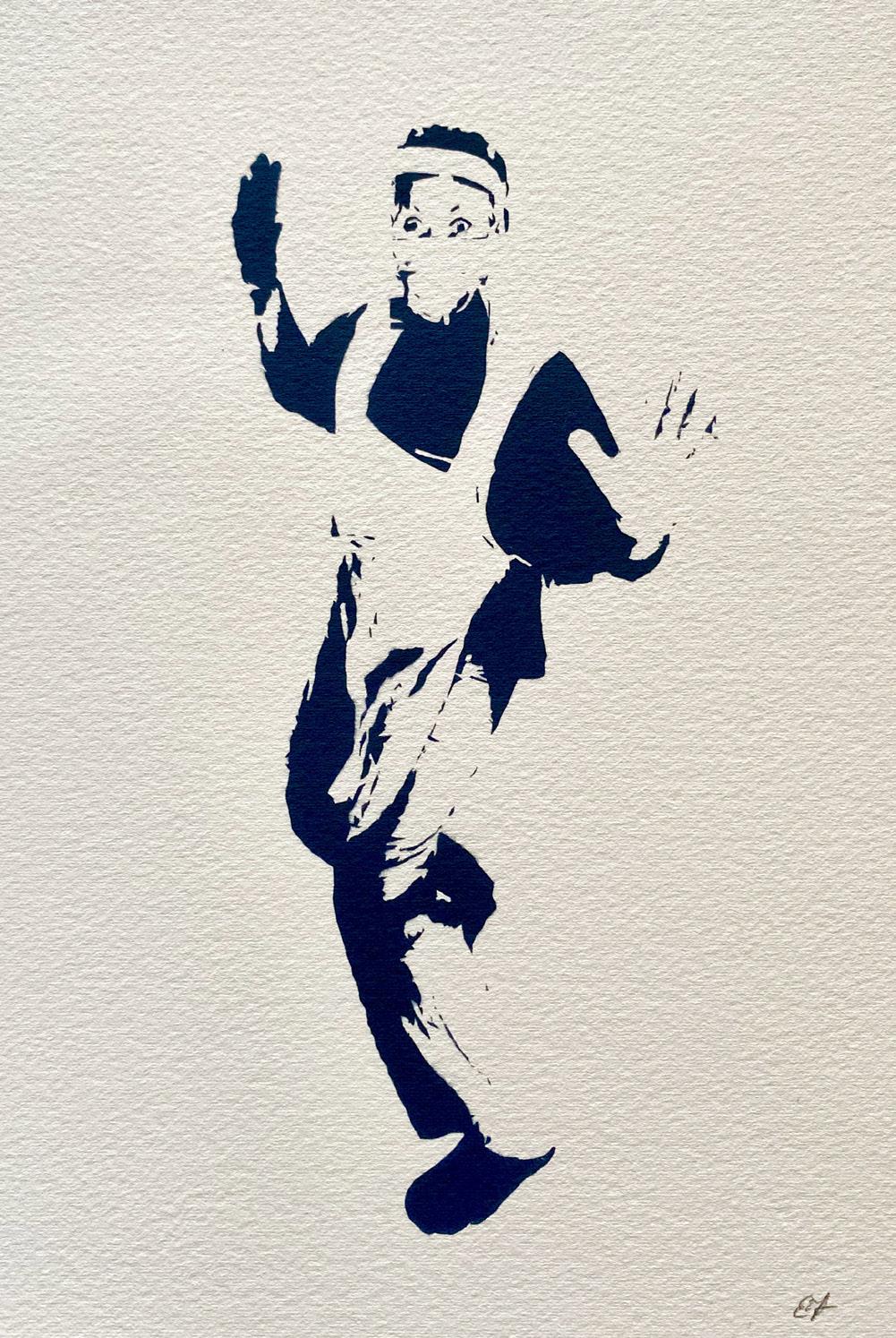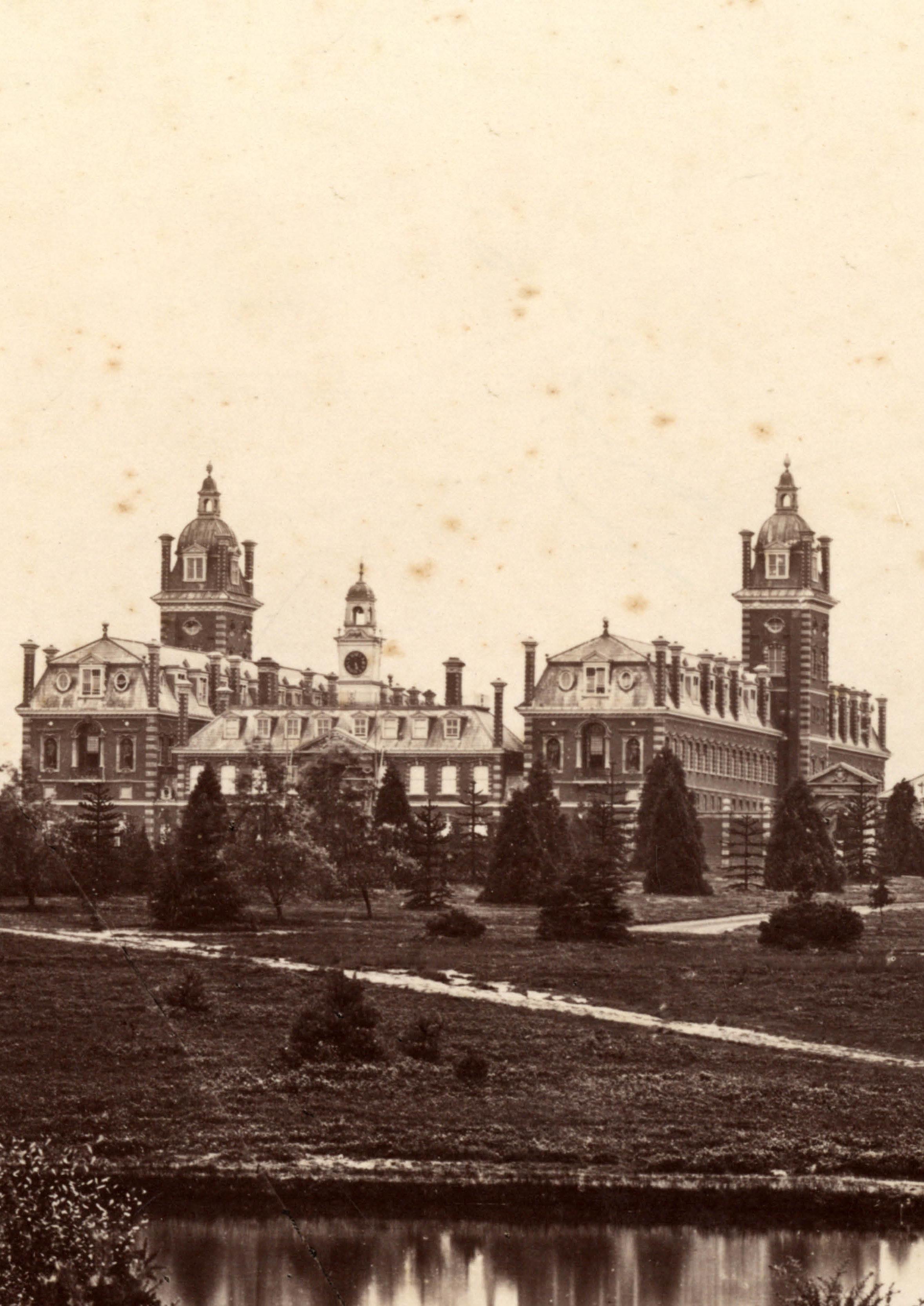
17 minute read
Service

Welly Wildlife
Advertisement
Wellington College is immensely blessed, with four hundred acres of fantastically varied habitats: parkland, formal gardens, rewilded meadows of wildflowers and grasses, mixed woodland, ponds, lakes, heathland, and bog. While we have immaculate lawns, pitches, and golf greens, we also have the benefit of sufficient space to leave other areas less intensively managed and more as nature intended, which is essential for biodiversity. The Gardens team leave piles of dead logs in the woodlands, plant wildflower areas, and leave some areas of grassland to grow naturally. They manage the grasslands in different ways, with different cutting and leaving times, which develops a greater diversity of habitats.
The Wellington College estate continues beyond the ‘perimeter’ fence up to the edge of Little Sandhurst, and part of this unenclosed area is designated a ‘Site of Special Scientific Interest’ because it is an unusually diverse site, comprising mixed woodland, heathland, and bog. Lowland heathland and bog are priority habitats for the government’s Biodiversity Action Plan as, sadly, they have decreased respectively by 80% and 94% in the last two hundred years.
All this wonderful landscape, with its mixture of different habitats, supports a huge range of wildlife. You might have seen our deer and foxes, and sometimes local badgers hunt here. We also have a great variety of birdlife, from large birds of prey, such as the Red Kite, to Britain’s smallest bird, the Goldcrest. The nocturnal Nightjar and the rare Dartford Warbler breed on the SSSI. We have an abundance of amphibians breeding in our ponds, and most, if not possibly all, of the six British reptile species on the SSSI. We also have a tremendous array of invertebrates performing vital roles in all these habitats.


Some of the pupils help to manage the SSSI as part of their Service. They cut back trees that have seeded themselves in the heath, to prevent it from turning into woodland and prevent the leaves from adding nutrients to the soil. Heathland and bog soils are poor in nutrients, and the plants that live there have adapted perfectly to this and would not be able to cope with a higher level of nutrients. In nature, the tree seedlings would be removed by wild grazing animals, such as deer and ponies. It is fantastic to see our pupils playing a key role in maintaining this significant environment, and we look forward to seeing this continue next year.

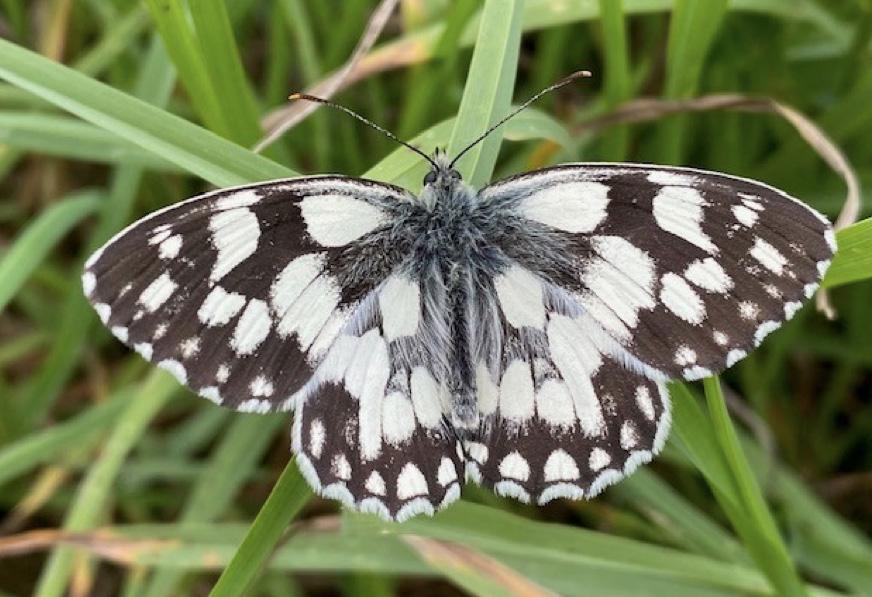

Global Social Leaders Festival
On the 18th and 19th June 2020, the Wellington Leadership and Coaching Institute, in partnership with Future Foundations, cohosted the third Global Social Leaders Festival. The focus was on Wellbeing, youth social action, and how we build back a better world. We had a wonderful day, featuring a variety of speakers: Harvard and Oxford University lecturers, a Peer of the Realm, and a number of teenage activists came together virtually from five different continents. It was an amazing chance to connect with people from around the world, with students and teachers from 63 countries as well as 3,000 hits on the live site, including a special message from Ban Ki Moon, former UN Secretary General, to our Global Social Leaders. Two of our students contributed to the Black Lives Matter panel, and we were also able to celebrate the winners of this year’s Global Goals competition. If you missed out, then you can catch up on the great talks at our GSLfest website! https:// www.globalsocialleaders.com/live-stream/

Care4Calais
The last weekend of November saw 28 Wellingtonians travel to Calais as part of the WCPCI initiative to help the charity Care4Calais carry out its ongoing work to provide aid to refugees. Speaking in Chapel after their trip, Rosie Wrigglesworth (Hn) and India Parsons (Hn) had this to say about their experience: “The main aim of our trip was to restore elements of humanity to the lives of the refugees we interacted with; taking the opportunity to hear some of the stories these resilient people had to share, whilst allowing us to reflect upon everything that we are so fortunate to take for granted. Over the course of two days, we sorted donations in the warehouse to prepare for upcoming distributions, in addition to handing out warm clothes to camps in Calais and Dunkirk. During the two visits to refugee camps, we started games of football and volleyball, as well as bringing along music, all of which was thoroughly enjoyed by all and provided a temporary distraction from the daily struggles of the refugees living in such tough conditions.
What struck us most about meeting refugees who had fled for a variety of reasons, was their shared sense of positivity and the overwhelming presence of hope in the face of adversity.”
Wellington College Peace and Conflict Institute
The WCPCI is based on the philosophy that a peaceful society does not just happen; it depends on everyone to play their part in building a world that is more just and equitable for all its inhabitants. Through studying conflict situations and examining the role of exceptional individuals who stood up in various capacities in the face of egregious cruelties and injustices, we learn that peace is not just the absence of war but a dynamic effect of people who stand up against injustice, work to overcome the everyday biases and prejudice that lead to hateful behaviour, and build social systems that are inclusive and fair for everyone in society.
WCPCI visits Rwanda
The WCPCI’s return visit to Rwanda saw us reunited with some old friends as well as building connections for the future with new partners in peacebuilding. Nineteen Lower and Upper Sixth students and three teachers made the trip in the October half term, landing in Kigali and visiting the National Genocide Memorial, before undertaking a packed itinerary that saw them travel throughout the country.
The focus on the 2019 trip was to learn how Rwanda has been able to move on from the tragic events of a quarter of a century ago, where the Genocide saw the rape and mass slaughter of over a million Tutsi. By applying principles of openness, equality, and community engagement, Rwanda has become a vibrant and forward-looking country, and also a country determined to ensure that such events never happen again.
During the trip, our pupils visited the Muzanze Gorilla Gardens to see sustainable tourism first-hand, and also the Rwandan Peace Academy, which trains military forces from around the world to prevent genocidal terror. Although a relatively impoverished country, Rwanda sends the second greatest number of personnel to UN peacekeeping missions.
The students also visited a school, St. Etienne Shyogwe, and after much singing and general excitement, were able to unpack the clothing donations they had brought, before enjoying a hard but fairly fought game of football which saw the hosts run out 3-1 victors!
Other highlights were trips to: Azizi Life, a widows’ collective; the river border between Uganda and Rwanda, the scene of appalling mass murder in 1994; genocide memorials at Nyamata and Ntarama; and finally, the beautiful new cricket stadium in Kigali, a tangible sign of the country’s regeneration and its determination to move forward peacefully.
The trip, although at times difficult and harrowing, was also instructional and uplifting; it will live long in the memory of both students and staff, and plans are already underway for another visit in 2021.

Global Citizenship
2019/20 is the second year of the Global Citizenship programme, and its is fair to say that in September it looked very different to how it ended in June. The aim of the programme is to equip pupils with competencies to enter the wider world as positive social change makers, having discovered much more about themselves and different communities through the programme, by means of a mix of theory and experiential learning. Little did we know that a global event would present such opportunities for change and learning when we launched the annual programme in September.
The formal Wednesday afternoon programme is made up of a number of strands, working with Third, Fifth, and Sixth Forms, each with their own highlights, but without making an entire book of the programme (of which more later), some of the main highlights are included here.
Third Form pupils again worked for their Bronze Arts Award, with Silver Arts Award being the aim of a number of talented Fifth and Sixth Form students. Congratulations to all those who achieved their desired award.
Our trained Fifth and Sixth Form pupils delivered fun paddling sessions on Swan Lake, and orienteering sessions for local primary school children in the Adventure & Outdoor strand, before lockdown. Subsequently, the Adventure & Outdoor programme went online, which included a photography competition, with beautiful images sent in by pupils and staff. The winner of the best photo of the week was Egor Vert (R) and the winner of the lifetime best photo was Oli Flint (M). Community Action started the year as it usually does, with a group of Fifth Form leaders joining the Third Form out in the community working with local schools, care homes, and similar organisations in a myriad of projects. Popular activities included literacy programmes, oral histories, umpiring sports, intergenerational exchanges, and dog walking. The spread of the pandemic saw the programme change before lockdown arrived in a move to help keep pupils, staff, and our community partners safe. Instead of visits, the programme saw a gratitude activity, virtual pen pals, virtual book club, and a recorded concert for care homes. A number of pupils also took part in an online Community & Development programme delivered by EduSpots, involving pupils from the UK and Africa, with distinctions in the course being achieved by Raph Robeson (W), Anna Rantakari (W), Lizzie Webster (Ap), Pippa Judson (Ap), Ned Chapman (Pn), Hunter Pang (L), and Victor Moldoveanu (L). Special mention goes to Ned, who came second in the EduSpots Essay and Blog Competition.
Connected Curriculum projects carried on through the year; some were already in a format that could transition across the changes needed, such as the refugee project which meets bi-weekly over Skype, whereas others, such as friendship and mentoring with schools in Africa and China, could not. The aforementioned book “The Wellington College Book of Global Citizenship”, showcasing a number of the projects running and some devised solely by pupils, was to be in printed form with an element of fund raising at the Eve of Speech Day concert. This swiftly became an e-book, which can now be seen on the Wellington College website. Enrichment was to have been the “Headline Act” of Global Citizenship Day this June, under the quote of “finding your gift and giving it away”, often attributed to Picasso. The good news is that we will be “exploring our gifts” in June 2021!
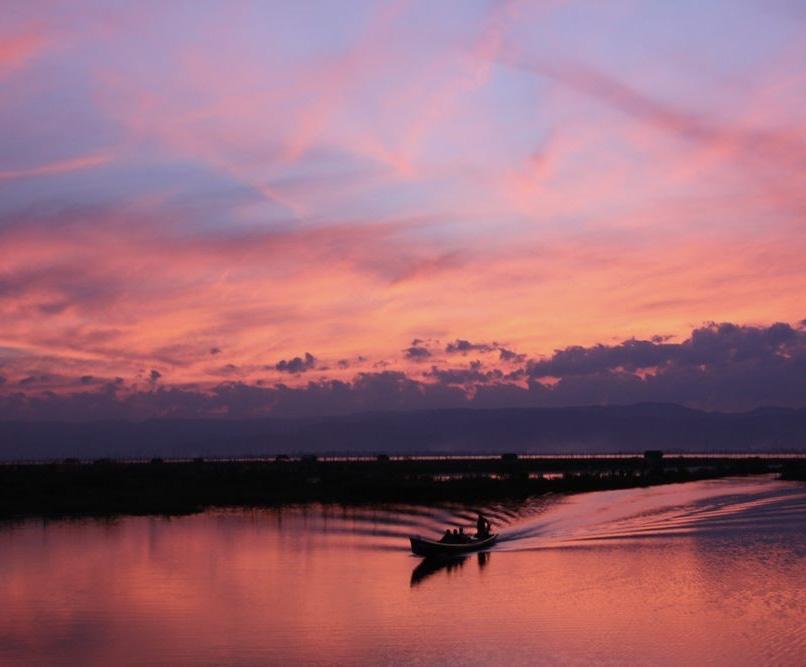
Many of the Sustainability projects had to be altered following lockdown, with the aquaponics tank moving to a new address, delivering not only a second set of crops, but also some new baby fish at the time of writing, to a reduction in landfill with studentled clothes collections being repurposed at the Cowshed charity, helping local families at a time of great need. Look out for the “Nine habits” video from one of the project teams when the V&A reopens.
The WCPCI’s programme culminated in the Peace Builders programme, with pupils researching and preparing presentations on icons of peace such as Oskar Schindler and Greta Thunberg. The pandemic impacted on one Care4Calais trip, but the programme continues to go from strength to strength, broadening beyond Wellington College to share understanding of the causes and resolutions of conflict to build a peaceful world with other schools and their pupils.
Welly Leaders’ vibrant programme continued to welcome pupils from other schools into college for leadership conferences, helped with admissions days, and worked on projects linked to the SDGs. Lockdown saw the WCLI Global Social Leaders programme move to a new format (more included elsewhere in this Yearbook).
The change in plans to a virtual Global Citizenship programme would have been so much more challenging without the WellyHub, where all cocurricular activities are showcased, so thank you to Laura Nicoli (C), Arjun Naha (Hg), Gregor Maclaine (M), and Dr Valim for the tremendous effort that produced such a valuable resource in record time over the Easter exeat.
So, this year, more than ever, the pupils have shown character traits of resilience and adaptability as they adjusted to the new style of Global Citizenship, understanding the interconnectivity of the world in greater depth. There is still so much more to learn, with next year seeing greater pupil voice and the new “Social Justice” strand joining the programme – watch this space!
DofE Expeditions
The DofE expedition season made a flying start in 2019, with more Wellington students involved in the October trip than we have seen in many years. It was an expedition of two halves: the Bronzes enjoying glorious weather from beginning to end, the Silvers suffering poor weather as well as missing the Rugby World Cup final!
By making some changes (we allowed students to be closer to home and made the expeditions more accessible), more Wellingtonians than ever before had a fantastic time, despite one memorable moment involving extreme heat, a frying pan, and popcorn! Neither popcorn nor pan survived the incident, but thankfully the student emerged shocked but unscathed. The Bronzes were of an exceptional quality this year, engaging well with the training and performing admirably on the practice expedition. The Silvers were of a similar standard; however, they came into their own as the weather deteriorated, showing true Wellington grit, and looking happier as the weather worsened. The teams were very receptive to the training and their navigation skills were exceptional. Teams managed to get between the campsites without getting lost and taking forever, and the final day sprint to the finish was a sight to behold. An excellent year, and one full of promise, that was so sadly curtailed by Covid-19. Nevertheless, the expedition team is looking forward to the 2020/21 season and the changes and opportunities that will bring.
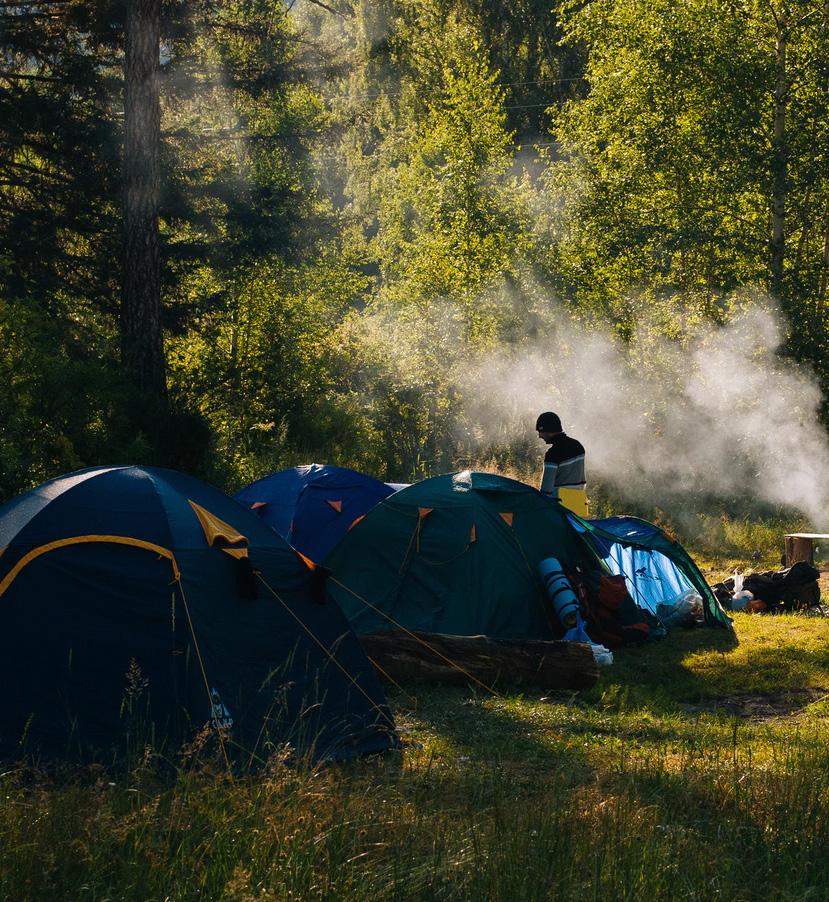

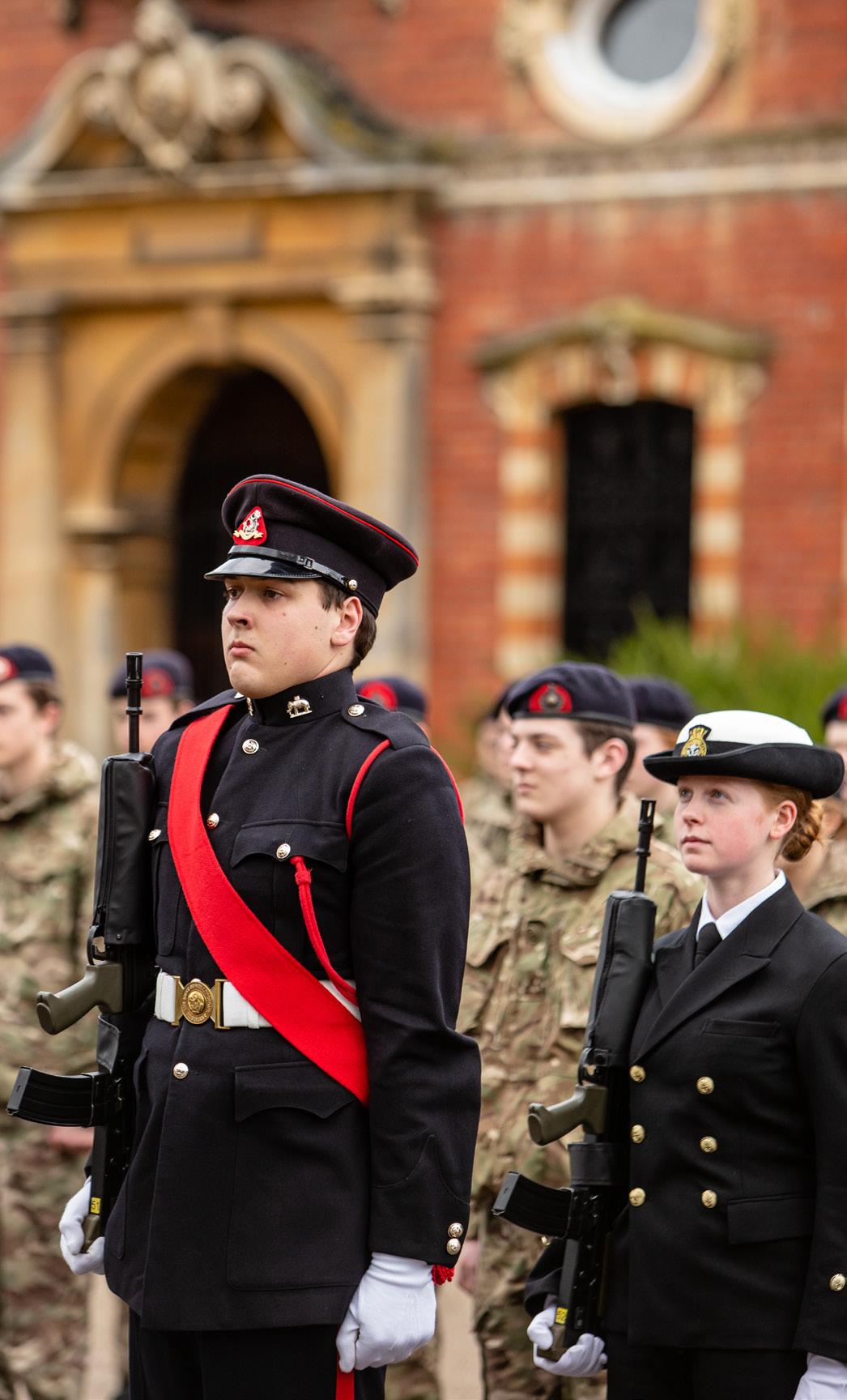
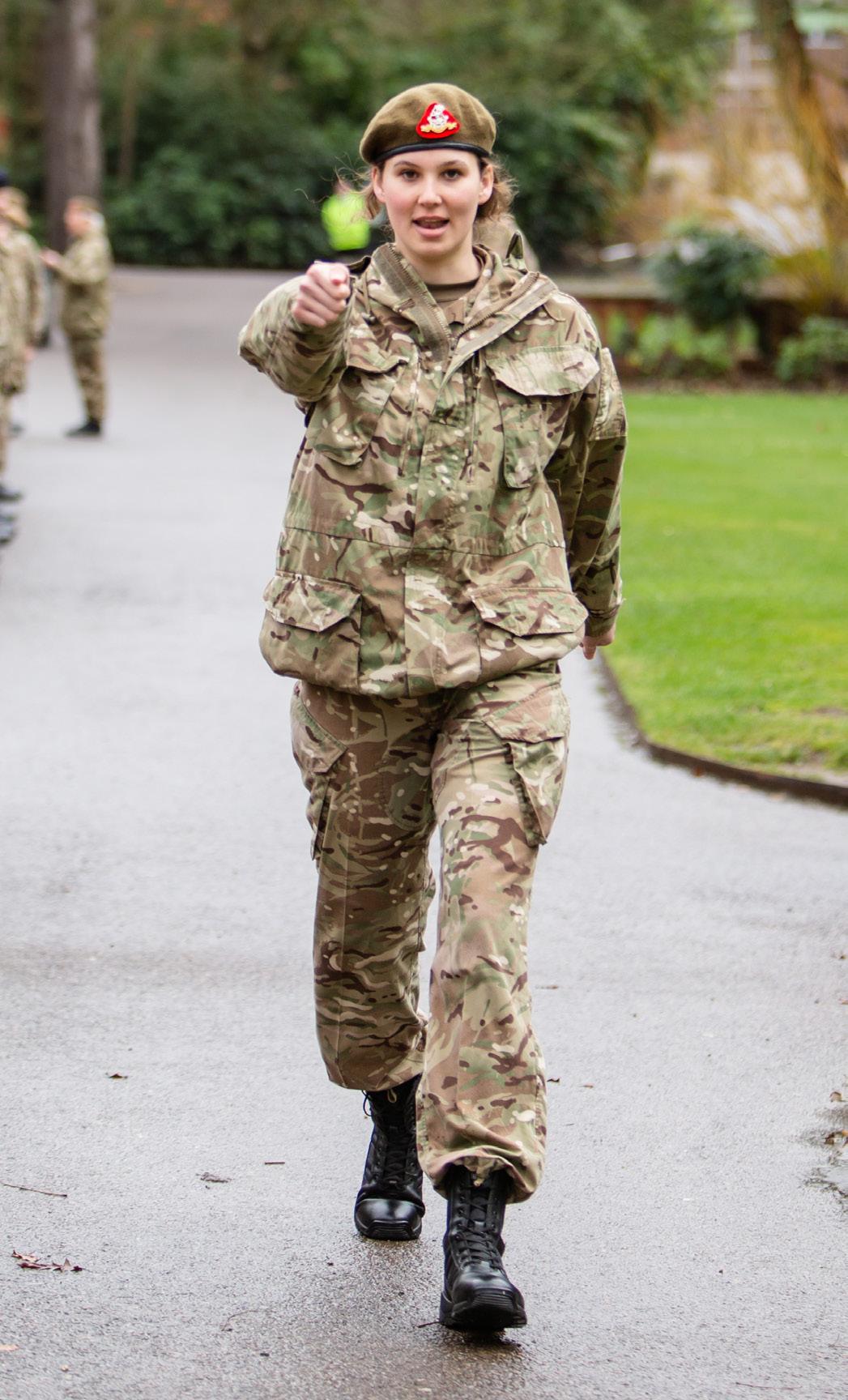
Wellington College remains rightly proud of its Combined Cadet Force (CCF) Contingent, and this year the range of activities and development opportunities for cadets has been as wide ranging and imaginative as ever, even considering the impact of Covid-19 with face-to-face cadet activities not planned to resume until September 1st 2020.
Royal Navy (RN) cadets have taken part in a range of activities, including afloat and leadership training. An overnight stay on HMS Belfast provided a unique experience for cadets, alongside visits to the National Maritime Museum and Royal Observatory. A feel for the seafaring history of London was gained on the river trip from Tower Bridge to Greenwich. The planned adventure training at Jersey Camp, Isle of Wight, could not take place due to restrictions on cadet activities taking place in June. The planned Summer Term military camp at Bramley, and adventure training camps in Dorset and North Wales for Royal Marine (RM), Army, and Royal Air Force (RAF) sections were similarly affected. Sub Lieutenant Jacqueline Chapman, who has supported the RN Section enthusiastically for a number of years, was awarded the Duke of Wellington’s Regiment Association Common Room Prize this year, in recognition of her services to the contingent.
Early in the year, the RM Section again competed in a revamped Sir Steuart Pringle Trophy, held at the Commando Training Centre, Lympstone. For the first time, the Pringle team included two female cadets. Credit must go to the entire team for significantly improving on their overall placings of recent years. The RM Section also took part in full-bore shooting on the Pirbright ranges. Sadly a “training in built up areas” exercise on the Salisbury Plain was cancelled, along with a planned endurance exercise on the South Downs; both for predictable reasons. A huge amount of planning goes into these exercises, and frustration amongst adult volunteers and cadets would be understandable; however, as ever the response of all in the context of serious world-wide events has been unsurprisingly pragmatic.
The RM Section did however regain the Dukes’ Trophy, having been beaten into second place by the Army Section last year. This year, the event was held online via Microsoft Teams, with teams fielded by all four sections. Cadets were challenged by a mixture of exercises testing leadership, organisation, knowledge, and problemsolving skills, with the eventual victors narrowly beating the RN Section, who finished a close second. Interviews for the post of Cadet Regimental Sergeant Major 2020/21 were also undertaken online, and in the Summer Term an offer of “Virtual CCF” was also delivered.
In October, all sections participated in the contingent’s annual Field Day. The RM and Army sections, including those year cadets training for the Military Proficiency Certificate (MPC), all spent the day on the Bramley Training Area. Activities included a range of field craft exercises, with support from the Royal Welsh. The contingent very much values the support it gets from regular units of all three services, and from their cadet training teams. During the year, the majority of cadets in both the Army and the wider cohort of MPC candidates have fired full-bore and/or small-bore weapon systems. At the time of writing there is uncertainty regarding any cadet target shooting taking place over the summer break. This is an area in which Wellington’s cadets are traditionally successful. Captain David Edwards, (late of the Royal Welsh), leaves us this year for pastures new. Command of the Advanced Infantry, (Army Fifth form), will be assumed by Major Sam Gutteridge.
The RAF Section has again had a varied year. Its activities have included flying, shooting, teambuilding, leadership, and airmanship, as well as taking their drill performance to new heights. Flight Lieutenant Fiona Wright steps down as section commander, to be replaced by Flying Officer Clare Edwards. Fiona, having achieved some remarkable successes, remains within the section as an experienced volunteer and subject matter expert for shooting. The contingent is grateful for her service.
The Cavalry Section remains a popular option for a small number of cadets. As well as joining the mainstream programme of military skills and adventure training on field days, the section’s training involves military riding, show jumping, tent-pegging, and mounted sword drill.
This year’s reviewing officer was planned to be Captain Lee Hazard RN MBE. The contingent was very much looking forward to welcoming Captain Hazard as a member of the senior service, and we do hope that he will visit us soon and see some of the remarkable things that our cadets get up to on a Wednesday afternoon. The cancellation of CCF Inspection, Speech Day (in its physical form), and Duke of Wellington’s Regiment Association lunch, denied our drummers opportunities to show what they are capable of. A huge shame as this year sees Mr Ray Smith stand down from his role as director of the drum corps. Over the last 30 years, Ray has had and enjoyed remarkable success with his teams as a result of his skill, commitment, enthusiasm, and professionalism. The corps will miss him.
Similarly, the colour party only had outings during Remembrance week. Their excellence was matched by that of our corps of bugles. This year’s address at the CCF Remembrance Service was given by Major Sam Gutteridge. In the absence of a college chaplain, the service was presided over by the Reverend Roy Burgess. The Picton were narrow winners of the House Drill Trophy and were led by the departing holder of the Honourable Artillery Company Sword of Honour, Under Officer Hugo Swift (Pn). We are grateful to Captain Brian Cannon, who organises this annual competition, and this year to the Scots Guards for providing judges. It was a shame that the necessary change to virtual Speech Day meant we could not celebrate publicly the achievements of all our cadets and prize winners. Two cadets this year gained Army Scholarships, Cadet Under Officer Hugo Swift and Cadet Company Sergeant Major Emily Gubby (W). Two outstanding cadets amongst an outstanding leaving year group.


